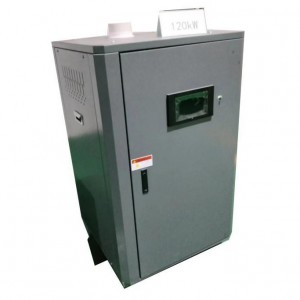- Afrikaans
- Albanian
- Amharic
- Arabic
- Armenian
- Azerbaijani
- Basque
- Belarusian
- Bengali
- Bosnian
- Bulgarian
- Catalan
- Cebuano
- China
- China (Taiwan)
- Corsican
- Croatian
- Czech
- Danish
- Dutch
- English
- Esperanto
- Estonian
- Finnish
- French
- Frisian
- Galician
- Georgian
- German
- Greek
- Gujarati
- Haitian Creole
- hausa
- hawaiian
- Hebrew
- Hindi
- Miao
- Hungarian
- Icelandic
- igbo
- Indonesian
- irish
- Italian
- Japanese
- Javanese
- Kannada
- kazakh
- Khmer
- Rwandese
- Korean
- Kurdish
- Kyrgyz
- Lao
- Latin
- Latvian
- Lithuanian
- Luxembourgish
- Macedonian
- Malgashi
- Malay
- Malayalam
- Maltese
- Maori
- Marathi
- Mongolian
- Myanmar
- Nepali
- Norwegian
- Norwegian
- Occitan
- Pashto
- Persian
- Polish
- Portuguese
- Punjabi
- Romanian
- Russian
- Samoan
- Scottish Gaelic
- Serbian
- Sesotho
- Shona
- Sindhi
- Sinhala
- Slovak
- Slovenian
- Somali
- Spanish
- Sundanese
- Swahili
- Swedish
- Tagalog
- Tajik
- Tamil
- Tatar
- Telugu
- Thai
- Turkish
- Turkmen
- Ukrainian
- Urdu
- Uighur
- Uzbek
- Vietnamese
- Welsh
- Bantu
- Yiddish
- Yoruba
- Zulu
Okt . 10, 2024 20:33 Back to list
Tailored Solutions for Precision Machine Base Castings and Custom Fabrication
Custom Machine Base Casting A Cornerstone of Precision Engineering
In the realm of precision engineering and manufacturing, custom machine base casting plays a pivotal role in ensuring the structural integrity and performance of various machinery. As industries continue to evolve, the demand for tailored solutions that meet specific operational requirements grows. Custom machine base casting offers a unique approach, allowing manufacturers to create bespoke components that are essential for heavy machinery, industrial equipment, and specialized applications.
Machine bases serve as the foundational support for various types of machinery, from CNC machines to automotive assembly lines. Their primary function is to absorb vibrations, provide stability, and maintain precision during operations. Given the critical nature of these functions, the engineering of machine bases demands a high level of expertise and meticulous attention to detail.
The process of custom machine base casting typically involves several stages, starting from design and material selection to the final casting and machining. Advanced computer-aided design (CAD) software is often employed to create detailed blueprints that cater to the specific needs of the client. This allows for the incorporation of unique features, such as mounting points, coolant channels, and specific geometries that enhance performance.
Material selection is another crucial aspect of the casting process. Common materials used in custom machine base casting include cast iron, ductile iron, and sometimes steel alloys. Each material has its own advantages, with cast iron being favored for its excellent vibration damping characteristics and ductile iron offering enhanced tensile strength. The choice of material depends largely on the application and operating conditions the machine base must endure.
custom machine base casting

Once the design and materials are finalized, the casting process begins. This involves pouring molten metal into molds that have been crafted to the precise specifications of the design. After the metal cools and solidifies, the cast component is removed from the mold and subjected to various finishing processes. These may include grinding, drilling, and machining to achieve the desired tolerances and surface finishes.
Quality assurance is a vital component of custom machine base casting. Rigorous testing and inspection ensure that the components meet industry standards and client specifications. This may involve non-destructive testing methods, dimensional checks, and performance evaluations to confirm that the machine bases can withstand the rigors of their intended use.
The benefits of custom machine base casting extend beyond performance and durability. By employing a tailored approach, manufacturers can reduce material waste, streamline production processes, and enhance overall efficiency. Moreover, custom castings can lead to significant cost savings in the long run by minimizing assembly time and ensuring a perfect fit for the machinery they support.
In conclusion, custom machine base casting is an essential process in the field of precision engineering. With its ability to provide bespoke solutions tailored to specific operational needs, it stands as a critical component in the efficiency and effectiveness of modern manufacturing systems. As industries continue to innovate, the significance of custom base casting will only increase, underscoring its role as a foundation for quality and performance in machinery.
-
Durable Centrifugally Cast Iron Water Main Pipe
NewsAug.11,2025
-
Centrifugally Cast Iron Water Main Pipes for Reliability
NewsAug.10,2025
-
High-Quality Centrifugally Cast Iron Water Main Pipes
NewsAug.09,2025
-
Durable Cast Iron Water Main Pipe & Drainage Solutions
NewsAug.08,2025
-
Buy Cast Iron Pipe: Premium Ductile Iron & Drain Solutions
NewsAug.07,2025
-
Durable Cast Iron Water Main Pipe | Buy Ductile Pipe
NewsAug.06,2025


